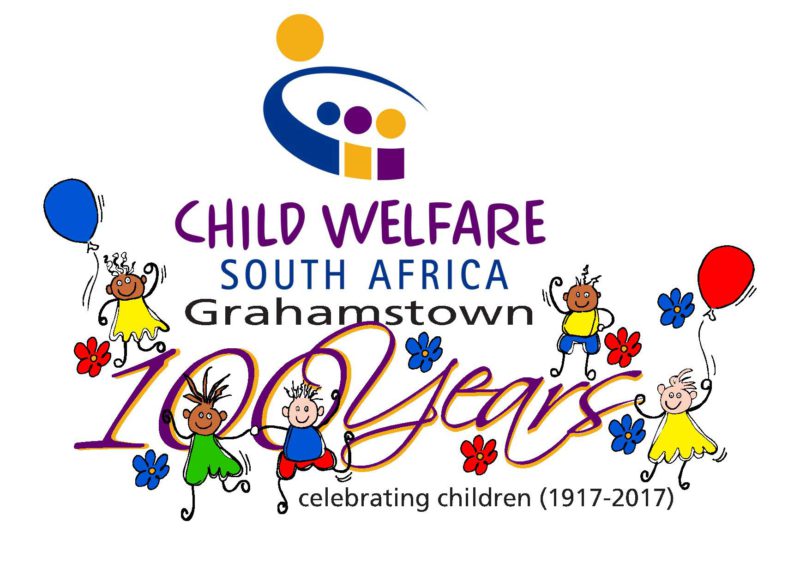June saw Child Welfare SA Grahamstown hosting its centenary celebration at our Enrichment Centre up in Joza. It was a wonderful day attended by many members of our local community who were able to delight in the fantastic performances presented by our children from the Nompumelelo Pre-School. Part of our work at Child Welfare is to introduce safety information and prevention techniques against different forms of abuse to our children in the pre-school and Ikhaya Losizo Cluster Homes. We hope to spread this reach to be inclusive of all children in Grahamstown.
Our high caseloads, however, continue to tell the story that in Grahamstown alone, sexual abuse is rife. Many of the offenders we encounter do not have previous criminal records and create opportunities for themselves by placing themselves in positions where they have easy and/or convenient access to children. It is quite common to find that offenders embark on a process of ‘preparing’ a child, a process which can sometimes stretch over months in order to gain the trust of the child and very often the parent as well.
In approximately 80% of all sexual abuse cases the sexual molester is known to the child and/or the family. Perpetrators may include immediate family members’ likes fathers, mothers, step-fathers, uncles, neighbours and older brothers. People in trusted positions like teachers, doctors, even police, also have the potential to be the abuser. Of course strangers may also be abusers (Anita Marshall for RAPCAN).
We have found that a primary reason why children are innocently drawn into abusive situations is as a direct result of inadequate information. In South Africa, it is culturally accepted that we teach our children to obey their elders.
However, far too often, we fail to teach our children that there are times they should challenge adult authority, specifically including adults in their immediate environment. Children need to be taught that they have a right to say ‘no’ even if it is towards their father or a pastor.
As parents we can appreciate that it is not possible to be with your child all the time in order to protect them from being abused. It is, however, your responsibility as a parent to educate your child about all forms of abuse. Children need to be guided in a loving environment in order for them to be conscious of possible approaches by people whom they would normally trust and obey. It is also your responsibility as a parent to attempt to always be aware of where your child is and what they are doing.
From as young as possible, we need to start introducing safety information and prevention techniques to different forms of abuse. This must be done without over-dramatising, or alarming children unnecessarily. Information should be gradually introduced to a child as it is unlikely that a child will in one sitting remember everything we have told him/her. The information must also remain age-appropriate, evolving as the child grows older.
There is an abundance of literature that can assist a parent with this task. A few very basic guidelines (Anita Marshall for RAPCAN) include ensuring that you use basic, simplified information and the correct words so that children grow up knowing the correct way of referring to body parts.
Use what your children know already and build on to that information. Try and put information across in a positive manner and listen carefully to questions so that you are able to respond in an appropriate manner.
Do not attempt to scare children, as fear has a debilitating effect at times. Empowerment through positive information and self-esteem development is normally much more effective. Use games such as ‘what if’ situations and assist your child to come up with practical answers. This teaches them that they can trust their own judgement, based on full information.
Encourage children to talk about comfortable and uncomfortable physical touch situations. A difference between a hug that feels good and hug that does not feel that good should be discerned by a child. A child should be taught that their body belongs to themselves and that they have the right to express if he/she feels uncomfortable with a touch.
Many adults insist on children kissing family members as a form of politeness. If a child does not want to kiss an adult, trust her judgement and let her know that is okay.
Encourage your child to talk with you if they are feeling uncomfortable with a situation. It is difficult for children to say no to adults, but with practice and your support, they develop the ability to do so assertively.
Talk about secrets, use examples. Often potential abusers develop a relationship of our special secret to protect themselves from possible disclosure by the child. Children need to know this.
Discuss bribes and threats and what they mean.
Children should also not be taught to judge people as good or bad. Often strangers or unconventional looking people are regarded as bad and good people are the ones known to the child. Teach children to be objective in their observation of people – all people have good and bad qualities.
Ultimately, answer questions honestly as possible. Encourage communication with your children so that they feel comfortable talking about any topic. Rectify incorrect information. Provide children with a support structure so that if they feel unsafe they have someone to talk to.
Teach them how to “Say no, run to a safe place and tell someone they trust.”


